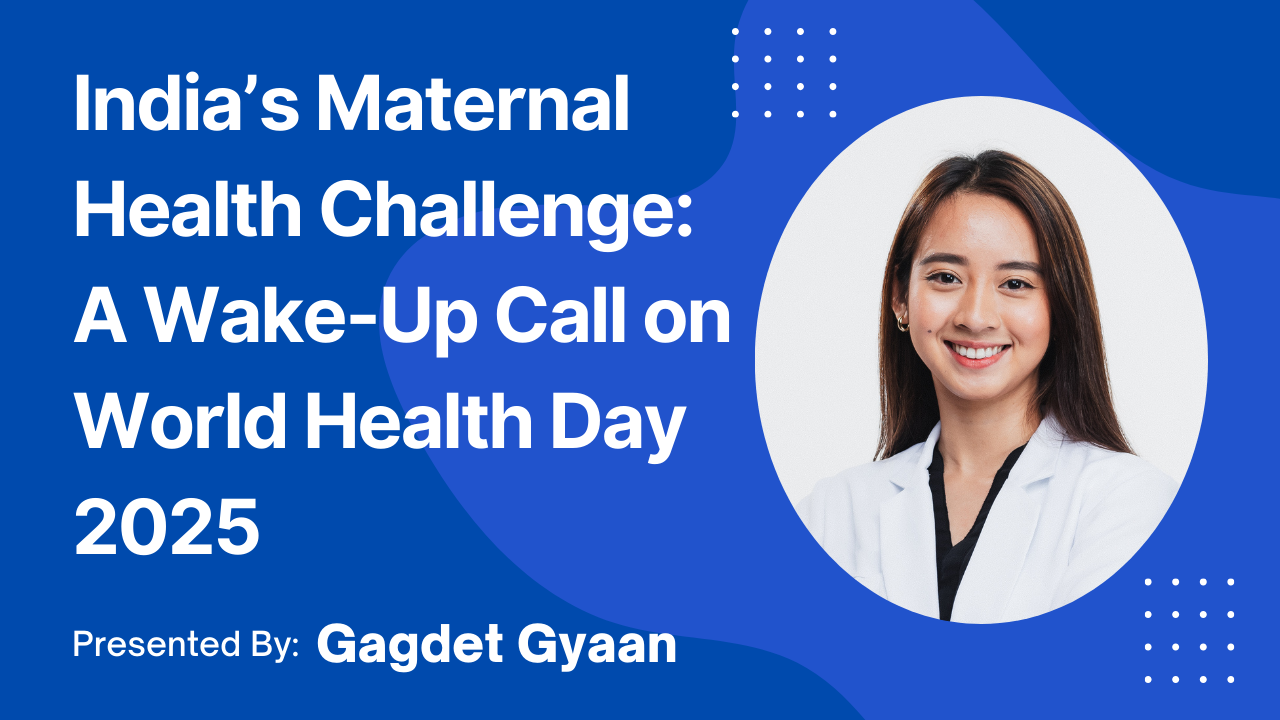As the world gets ready to observe World Health Day 2025, the spotlight is on the health of mothers and newborns. The subject for this year raises awareness of a significant problem: despite some advancements over the years, India continues to lag behind on important health objectives for expectant mothers and newborns.
Even today, too many women in India face dangerous pregnancies and lack access to proper care. Their babies are also at risk of serious health problems or even death. These are not just numbers—these are lives, and we need to act now.
Table of Contents
How Climate Change is Making Pregnancies Riskier
One of the big topics this World Health Day 2025 is how climate change is making things worse for pregnant women and babies.
Pregnant women who experience high temperatures may develop heat exhaustion or heat stroke, which can result in dehydration. This can harm both the mother and the baby. Newborns are even more sensitive to heat and can get sick very quickly, which can lead to serious problems like kidney failure.
Mosquito-borne diseases like dengue, malaria, and Zika are spreading more due to rising temperatures. Pregnant women and small children are at greater risk because their immune systems are weaker. Making things worse, many of the medicines that treat these diseases are not safe for use during pregnancy.

Pollution and Pregnancy: A Dangerous Mix
Polluted air and dirty water are also major threats to mothers and babies. Breathing in bad air or drinking unsafe water during pregnancy can lead to birth defects, high blood pressure, diabetes, and even premature births or stillbirths.
All these problems can make pregnancy more dangerous and put babies at a higher risk of health issues right from birth.
Natural Disasters Hit the Weakest the Hardest
Floods, storms, and droughts are happening more often due to climate change. When these disasters strike, it becomes very hard to access clean water, food, shelter, or medical help. Pregnant women and children are often the worst affected.
They are also more likely to suffer from injuries, infections, and even violence during emergencies. In many places, the healthcare system is not strong enough to deal with these situations.
Alarming Numbers from India’s Capital
A recent report by the Comptroller and Auditor General (CAG) showed a shocking reality. Between April 2016 and September 2022, Delhi recorded nearly 50 maternal deaths every month, with 638 deaths in 2021–22 alone.
This happened in the national capital, where some of India’s top hospitals are located. If Delhi is facing such problems, think about the situation in small towns and villages where medical care is even harder to get.

What Needs to Change
On World Health Day 2025, health experts are urging India to take stronger steps to protect mothers and babies. Here’s what needs to happen:
- Better healthcare access for all pregnant women, especially in rural areas
- Free or affordable checkups, medicines, and support during pregnancy
- More doctors and nurses, trained to deal with pregnancy-related problems
- Safe shelter, food, and clean water during natural disasters
- New research on how climate change is affecting pregnancy and how to reduce risks
- Awareness campaigns to help people understand the link between the environment and maternal health
Everyone Has a Role to Play
This issue is not just the government’s job. Communities, families, and individuals all need to come together for World Health Day 2025.
- Support pregnant women around you
- Keep your surroundings clean and safe
- Speak up for better healthcare in your area
- Help spread awareness about these problems
When we work together, we can build a stronger, healthier future for mothers and their babies.
Final Thoughts
World Health Day 2025 reminds us that mothers and newborns must be a top priority. The risks are growing, especially with the impact of climate change, pollution, and poor access to care.
India has made some progress, but there’s still a long way to go. With better planning, stronger health systems, and more public support, we can make sure every mother has a safe pregnancy and every child gets a healthy start in life.
Let this World Health Day 2025 be a call to action—for a safer, healthier India.

